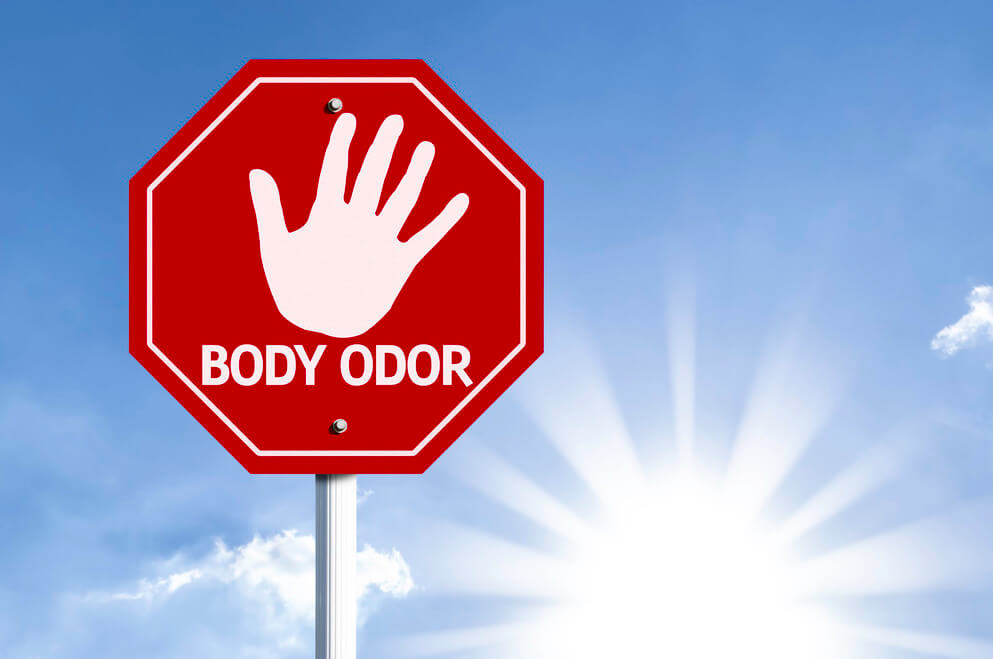Last Updated on 15/09/2025 by James Anderson
Introduction
Modafinil is widely known for its ability to enhance cognitive performance, increase alertness, and reduce fatigue. As a result, it is often prescribed to treat conditions like narcolepsy, sleep apnea, and shift work sleep disorder. However, while its cognitive benefits are well-documented, there are concerns about other side effects that may be less well-known, such as the potential to affect body odor. We explore whether modafinil can influence body odor and what may be the underlying causes behind any changes.
What Is Modafinil?
Modafinil is a prescription medication that promotes wakefulness. It is primarily used to treat disorders such as narcolepsy, sleep apnea, and excessive daytime sleepiness due to shift work. The drug works by affecting certain neurotransmitters in the brain, including dopamine, norepinephrine, and serotonin. Its ability to improve alertness and cognitive function has led to its use by individuals who seek a mental boost.
How Does Modafinil Work in the Body?
Modafinil functions by targeting the central nervous system to promote wakefulness and alertness. Unlike traditional stimulants such as caffeine, modafinil has a relatively mild effect on the body and does not typically cause the jitteriness or crashes that accompany other stimulants. The medication enhances the availability of certain neurotransmitters, improving focus, concentration, and overall cognitive function. However, this alteration in brain chemistry could lead to changes in other bodily functions, including body odor.
Can Modafinil Affect Body Odor?
While modafinil is not typically associated with significant changes in body odor, some users report that they notice a slight shift in their scent when using the drug. The exact mechanisms behind this change remain unclear, but there are several potential explanations.
What Causes Body Odor?
Body odor is primarily caused by the interaction of sweat with bacteria that naturally reside on the skin. Sweat itself is odorless, but when it mixes with the bacteria on the surface of the skin, it can create an odor. Factors such as diet, hormone levels, stress, and medication can influence body odor by affecting sweat production and the composition of the sweat.
The Role of Sweat in Body Odor
Sweat is produced by sweat glands, which are located throughout the body. There are two types of sweat glands: eccrine and apocrine. Eccrine glands are responsible for cooling the body, while apocrine glands, found mainly in areas such as the armpits, are linked to emotional stress and hormonal changes. The sweat produced by these glands contains proteins and lipids that bacteria can break down, producing the characteristic odor.
Modafinil and Its Impact on Sweating
Some users of modafinil have reported changes in their sweating patterns, with some indicating that they experience an increase in perspiration. Since modafinil increases alertness and energy levels, it could potentially trigger an increase in sympathetic nervous system activity, which may stimulate the sweat glands. This could lead to more perspiration, and in turn, an increase in body odor.
Scientific Studies on Modafinil and Body Odor
Currently, there is limited scientific research specifically focusing on the relationship between modafinil use and changes in body odor. However, studies on stimulants and their effects on body odor suggest that increased sweating, changes in the composition of sweat, and alterations in skin microbiota could all play a role in odor changes.
How Does Modafinil Affect the Skin and Sweat Glands?
Modafinil’s primary mode of action involves altering neurotransmitter activity, which could indirectly affect the skin and sweat glands. Since modafinil can elevate levels of norepinephrine and dopamine, these neurotransmitters might also influence the activity of sweat glands, particularly apocrine glands, which are more prone to producing odor when they secrete sweat.
Potential Causes of Odor Changes with Modafinil
There are several possible reasons modafinil might cause body odor changes:
- Increased sweat production: As discussed, modafinil could increase sympathetic nervous system activity, leading to more sweating.
- Changes in skin microbiota: Modafinil might alter the balance of bacteria on the skin, leading to different odor profiles.
- Metabolic changes: The drug could affect metabolism in ways that influence body odor, including changes in the composition of sweat.
Other Side Effects of Modafinil
While body odor changes are not commonly listed among modafinil’s primary side effects, there are other known side effects that users may experience. These can include headaches, dizziness, insomnia, nausea, and anxiety. If any side effects become bothersome or seem unusual, it’s important to consult with a healthcare provider.
How to Manage Modafinil-Related Odor Changes
If you notice a change in body odor while taking modafinil, there are several strategies you can adopt:
- Maintain good hygiene: Shower regularly and use antibacterial soaps to reduce bacterial growth on the skin.
- Wear breathable fabrics: Clothing made from natural fibers like cotton can help reduce sweat buildup and allow your skin to breathe.
- Stay hydrated: Drinking plenty of water can help reduce the intensity of body odor by flushing out toxins.
- Use deodorants: Consider using an antiperspirant or deodorant that can help reduce sweat and mask odor.
Personal Hygiene Tips for Modafinil Users
If you’re concerned about body odor while using modafinil, maintaining a solid personal hygiene routine is essential. In addition to the tips already mentioned, you might want to:
- Shave or trim body hair: Reducing body hair can help minimize the surface area for bacteria to grow.
- Wear moisture-wicking clothing: Clothes designed to wick moisture away from the skin can help prevent excessive sweating.
- Change clothes regularly: Especially during hot weather or after exercise, changing clothes frequently can prevent sweat buildup and odor.
Can Modafinil Alter Your Metabolism and Affect Odor?
Some evidence suggests that modafinil may have a mild impact on metabolic processes, which could indirectly affect the smell of sweat. By increasing energy levels and altering neurotransmitter function, modafinil might cause shifts in how the body processes food and burns calories, potentially altering the composition of sweat.
Conclusion
While modafinil is primarily known for its cognitive-enhancing effects, some users may notice changes in body odor. These changes are likely due to increased sweating, altered skin microbiota, or metabolic shifts caused by the drug. If you experience changes in body odor while using modafinil, it’s important to maintain good hygiene and consult a healthcare provider if necessary. Though not a common side effect, understanding how modafinil affects the body can help you manage any unexpected changes.
FAQ
1. Can modafinil cause an increase in body odor?
Yes, modafinil may increase sweat production, which can lead to changes in body odor.
2. What are some other side effects of modafinil?
Common side effects of modafinil include insomnia, headaches, dizziness, and nausea.
3. How can I reduce body odor while taking modafinil?
Good hygiene, wearing breathable fabrics, staying hydrated, and using deodorants can help manage body odor.
4. Does modafinil affect metabolism?
Modafinil may have a mild impact on metabolism, which could potentially alter the composition of sweat and body odor.
5. Is it common to experience body odor changes with modafinil?
While it is not a widely reported side effect, some users do notice changes in their body odor.
6. Should I stop taking modafinil if I notice body odor changes?
Not necessarily. However, if body odor changes become bothersome, consult with your doctor for advice.
‼️ Disclaimer: The information provided in this article about modafinil is intended for informational purposes only and is not a substitute for professional medical consultation or recommendations. The author of the article are not responsible for any errors, omissions, or actions based on the information provided.
References:
- U.S. Food and Drug Administration. PROVIGIL. U.S. Department of Health and Human Services. https://www.accessdata.fda.gov/drugsatfda_docs/label/2015/020717s037s038lbl.pdf . 2015
- Ballon JS, Feifel D. A systematic review of modafinil: potential clinical uses and mechanisms of action. J Clin Psychiatry. 2006
- Willavize, S. A., Nichols, A. I., & Lee, J. Population pharmacokinetic modeling of armodafinil and its major metabolites. https://doi.org/10.1002/jcph.800 . 2016
- Fuxe K, et al. Modafinil enhances the increase of extracellular serotonin levels induced by the antidepressant drugs fluoxetine and imipramine: a dual probe microdialysis study in awake rat. Synapse. 2005
- Mechanisms of modafinil: A review of current research. nih.gov. 2007
- PROVIGIL (modafinil) Tablets. FDA.GOV. 2010
- Oliva Ramirez A, Keenan A, Kalau O, Worthington E, Cohen L, Singh S. Prevalence and burden of multiple sclerosis-related fatigue: a systematic literature review. https://doi.org/10.1186/s12883-021-02396-1 . 2021.
- Ciancio A, Moretti MC, Natale A, Rodolico A, Signorelli MS, Petralia A. Personality Traits and Fatigue in Multiple Sclerosis: A Narrative Review. Journal of Clinical Medicine. https://doi.org/10.3390/jcm12134518 . 2023
- Mereu, M., Bonci, A., Newman, A. H., & Tanda, G. The neurobiology of modafinil as an enhancer of cognitive performance and a potential treatment for substance use disorders. https://doi.org/10.1007/s00213-013-3232-4 . 2013
- Natsch, A. What makes us smell: The biochemistry of body odour and the design of new deodorant ingredients. CHIMIA International Journal for Chemistry. https://doi.org/10.2533/chimia.2015.414 . 2015
- Hamada, K., Haruyama, S., Yamaguchi, T., Yamamoto, K., Hiromasa, K., Yoshioka, M., Nishio, D., & Nakamura, M. What determines human body odour? Experimental Dermatology. https://doi.org/10.1111/exd.12380 . 2014


